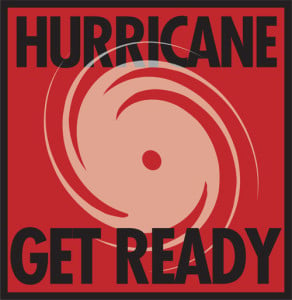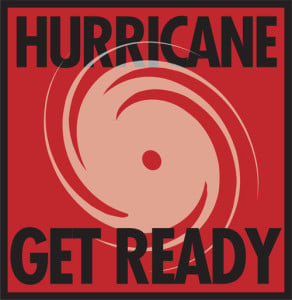The dreaded hurricane season is here. June 1 marks the beginning of the season, which goes until November 30.
 Does your community have a plan? If not, now is the time to create one. Knowing the necessary steps to prepare is key and this is where it all starts. The best time to plan is before a hurricane is predicted to hit.
Does your community have a plan? If not, now is the time to create one. Knowing the necessary steps to prepare is key and this is where it all starts. The best time to plan is before a hurricane is predicted to hit.
Days before:
- Turn on your TV or radio in order to get the latest weather updates and emergency instructions.
- Keep residents posted on the hurricane status and evacuation routes. Make sure the residents know exactly where to go and what to do in case of an emergency. Post it in the hallways, by the elevators, and/or the gatehouse to make sure everyone is fully aware.
- Distribute packets containing important contact information. Make sure to include the contact information for the property manager, Management Company and local police and fire departments, as well as local shelters and food stores.
- Re-stock your emergency preparedness kit, this should include a flashlight, batteries, cash, first aid supplies and water for employees working after the storm. Make sure the emergency generators are working and have enough fuel supplies.
- Take visual records of the property. Video and/or photograph the buildings and facilities in order to facilitate damage assessment later on.
- Backup computer files that are crucial to the association through online systems, CDs or portable storage devices.
- Bring any loose, lightweight objects inside, which could be dangerous in high winds, such as patio and pool furniture, garden tools and garbage cans.
- Cover all of the windows. Hurricane shutters offer the best protection for windows.
- Shut down pumps for pools, irrigation and fountains to avoid potential damage to motors.
- Have a hard-copy list with names of property owners and association employees complete with emergency contact numbers and second residence addresses.
- Have a list of all association vendors with contact information in order to quickly get in contact after the hurricane, if needed.
- Make sure all the insurance policies are current.
- Keep a list of bank account numbers and petty cash and/or copies of handwritten checks to use if debit, credit card and computer checks are not available.
As it gets closer and during:
- Turn on your TV/radio, or check your city’s website periodically in order to get the latest weather updates and emergency instructions.
- If you are not in an area given an evacuation order, stay at home. Let friends and family know where you will be during the storm.
- Provide evacuation assistance to any disabled residents.
- Open entrance gates so that residents may freely go in and out of the property.
After the storm:
- Once the area has been declared safe by public broadcast, survey the damage.
- Watch out for electrical wires, shattered glass, gas leaks, debris, etc.
- Communicate with residents the status of the property, what is being done and when it will be safe for them to leave their homes or return to them.
- Make the necessary arrangements to remove debris to prevent accidents.
- Evaluate the damage and determine the need for emergency repairs and review financing options.
- Review insurance policies and contact insurance company to report any damage.
- Mitigate the damages. Cover any broken windows, put tarp on damaged roofs, etc.
- Secure the property from acts of looting.
- Report broken gas, sewer and water mains to the respective utility company.
- Contact your vendors in order to assess damage and prepare plans.
Hurricane tips for condos
- Have designated people for each floor to check on residents with special needs, both before and after the storm.
- Move elevators to a higher floor so they don’t flood.
- To stay up to date on the necessary procedures before, during and after the storm regarding elevators, click here.
- Make sure residents know what is allowed in terms of window protection.
Hurricane tips for HOAs
- Take into consideration homes with docks and boats.
- Reinforce roofs, windows and doors, including garage doors.
Does your community association have a hurricane plan in place? What do you recommend having in a hurricane plan? Let us know in the comment section below.
